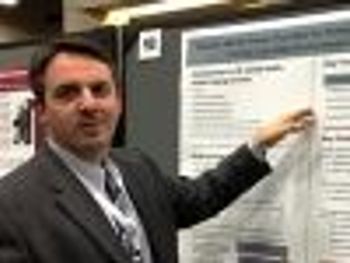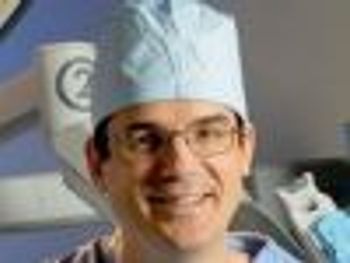
Federal spending for Medicare is under fire as part of the fiscal cliff talks, but a survey revealed that the majority of Americans reject reimbursement reductions to hospitals for Medicare and Medicaid services.

Federal spending for Medicare is under fire as part of the fiscal cliff talks, but a survey revealed that the majority of Americans reject reimbursement reductions to hospitals for Medicare and Medicaid services.

If you have considered converting a traditional IRA to Roth IRA, now may be the perfect time considering the tax increases you're likely to face in 2013.

Most parents want to give as much as possible to their children and to transfer money and assets to their offspring. However, sometimes children or others might take advantage of parents in poor mental or physical health, wiping out their financial resources.

The use of certain drugs for off-label purposes can be a lucrative business for some pharmaceutical companies. And now a federal appeals court ruled that pharmaceutical companies and their sales staff cannot be prosecuted for promoting unapproved uses.

Some people view retirement as the next adventure in their lives. Here are some international retirement spots depending on what you're looking to get out of your Golden Years.

With the patent cliff, growing research costs and increasing trial timelines, there are plenty of risks associated with pharmaceutical drug research and development. Perhaps there's something to learn from previous missteps with drug launches.

The entire health care industry is in the state of flux and a good number of medical practitioners are toying with an exit strategy. However, they have not crystallized their plans; here are some issues to address.

Despite constant coverage of the fiscal cliff since the election, surprisingly few people actually know what going over the fiscal cliff would do to the U.S. deficit, according to a survey.

If you don't know how to make money in the market today and you can't see a clear direction or trend, one option for generating income is to sell something you don't own. Yes, you did read that right.

Although the recession ended years ago, only three major cities in the U.S. have fully recovered. Here are the five fastest growing metro areas still in partial recovery, according to a new study.

Practicing geriatricians were offered an extensive selection of programs at the Meeting of the Gerontological Society of America, including thousands of posters detailing the research of graduate students and senior-level scholars.

The state of Obamacare was a big unknown before the 2012 presidential election. But when President Barack Obama was re-elected, the health care reform law was considered safe, right? Not quite, according to a challenge to the Supreme Court's ruling.

Buying stocks under $5 is like buying a lottery ticket. It's the thrill of the "what if." Just because a stock is trading under $5 doesn't mean it's cheap and should be added to your portfolio.

Toll Brothers reports earnings (important for housing numbers), President Obama will be talking about the fiscal cliff and job numbers come in on Friday - bad numbers here may be a result of Sandy.

Customer service matters more to patient satisfaction than medical treatment. Since patients' expectations have been lowered so much, putting just a little work into patient interactions will benefit your practice's bottom line.

The top pharmaceutical companies have improved access to their products in developing countries, developing more products for more diseases that disproportionately impact the world's poor and providing tiered pricing schemes.

Almost half of physicians nationwide report e-prescribing through an electronic health record system, a 41% increase over December 2008. Plus 88% of community pharmacies are enable to accept e-prescriptions.

While many investors put their money into big oil and gas companies, here are some alternative plays that have the potential to benefit tremendously from the increasing production of oil and gas in America.

Ever-evolving technology has provided new opportunities to improve patient care. However, unless they are properly used or monitored, these same technologies can also cause patients harm.

Being well trained, smart and knowledgeable is no longer enough to land and keep a job. These days the emotional quotient - such as likability and social grace - is at least as important as IQ.

With a month left in the year, investors are getting ready to close up 2012 and begin preparing for what 2013 has to throw their way. Here are five market themes Goldman Sachs is expecting for next year.

Typically primary care physicians aren't the best paid causing many medical students to avoid the career. However, things might be turning around for PCPs, according to a survey about 2013 compensation expectations.

Over the last 15 years physicians salaries grew very little and much less than other health care professionals (particularly pharmacists).

The latest talks about a fiscal cliff plan include cuts to entitlement programs - mainly Medicare - of at least $400 billion. Right now Democrats are very resistant to those cuts, although it seems inevitable, according to reports.

Many different groups feel they are being targeted by our president's plan to increase taxes and decrease deductions and don't like it, including retirees who make a lot of income from dividends and capital gains.

Vadim Gushchin is one of a handful of physicians on the East Coast who will perform a high-risk procedure on cancer patients; but the technique is minimally invasive and doesn't require surgery.

With pharmaceutical companies worrying about drug spending cuts they've increased the prices of branded drugs by 13%, far outpacing the 2% increase in inflation.

During 2011 physicians reported that they experienced a slightly longer work week while compensation was mostly flat or slightly down. More worryingly, the vast majority have poor outlooks for their practices over the next three years.

Throw out the old asset allocation models that assume older investors need to get rid of equity investments as they get older. Given the ever-changing retirement age and longer live spans, those old models no longer work.

Almost two decades since ETFs were first introduced in the U.S. and they are more popular than ever. With tax advantages, diversification potential but more error, is this vehicle right for you?